Whether you have experience or are just starting to grow your own fresh produce, you may have heard of hydroponic farming before. This method of urban farming has gotten increasingly popular over the years. But what exactly is hydroponic farming and how does it work? Have a look at everything you need to know.
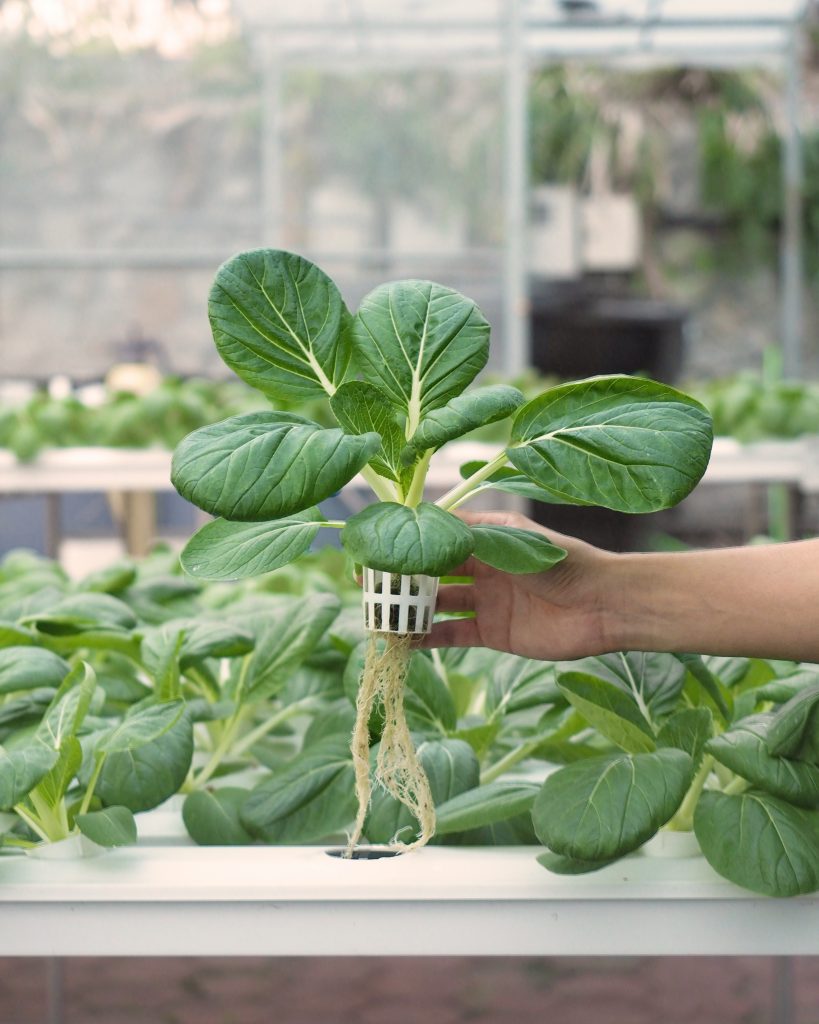
What is hydroponic farming?
Hydroponic farming is a type of soilless farming, in which plants are grown in water instead of soil. This means that every crop is fed with nutrient-packed water. This type of farming method can grow and produce food around cities or in highly populated areas where large pieces of land aren’t available. In other words, you can start hydroponic farming anywhere, even at home!
A hydroponic farm in Malaysia typically consists of various vegetables, herbs, or fruits. You can find them growing in houses or small, confined spaces such as containers.
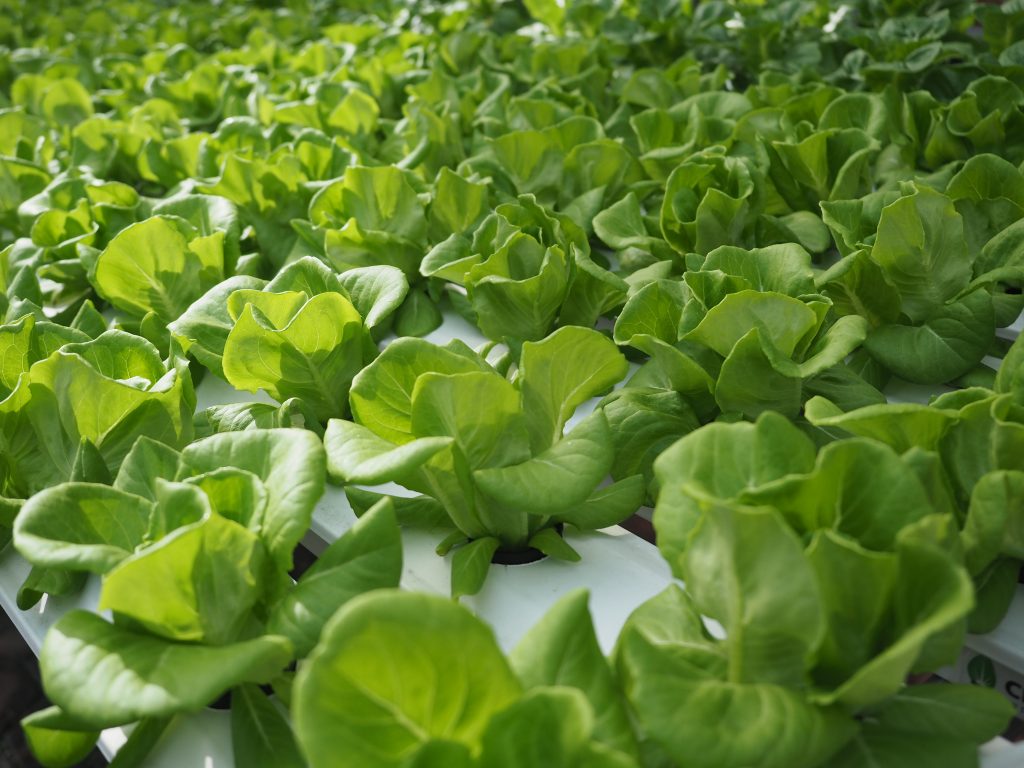

Benefits of hydroponic farming
What exactly makes hydroponic farming better than traditional farming? There are benefits that address both sustainability and food security.
1. Saves more space
Hydroponic farming does not take as much space compared to traditional farming. This is because the crops aren’t required to spread their roots in order to look for the nutrients or moisture needed. Instead, they absorb the nutrients directly from a thin film of water readily available to them.
2. Fewer resources needed
Hydroponic farming does not require soil, sunlight, or a specific temperature. It can avoid the many issues found with soil planting. This means that less labour is required as well to monitor the plants. All you need are a couple of containers or jars and water to start growing!
3. Grows faster than traditional farming
Compared to traditional soil farming, hydroponic crops tend to grow up to 50% faster. The primary reason for this is that there are no external factors such as harsh weather conditions affecting them.
4. Easier to diagnose crop issues
You can bump into many issues when planting, ranging from pests to over/underwatering. With hydroponic farming, it’s much easier for you to identify what’s affecting the growth and prevent the issues from happening again.
5. Few chemicals are used
As there are no pests burrowed under the ground in hydroponic farms, there is a lesser chance of an infestation. With a greenhouse or indoor environment, you can eliminate the use of herbicides or pesticides, growing healthier and safer plants.
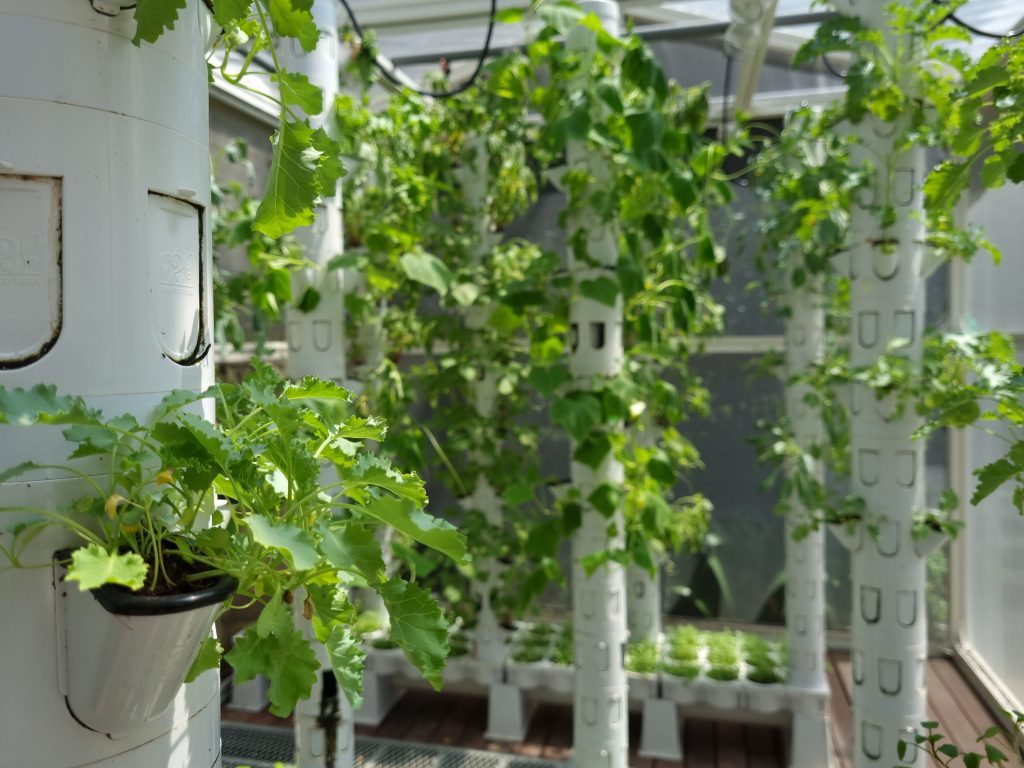

Differences between vertical farming and hydroponic farming
Although both are great urban farming methods, vertical farming refers to when the crops are grown on shelves that are typically stacked, either in the form of a tower or attached to the walls. Vertical farming can accommodate both soil and hydroponic growing.
Hydroponic farming is a system where plants or crops are only grown in water. Instead of gaining nutrients from the soil, it gets the nutrients from water instead.
What can you grow with hydroponic farms at home?
If you would like to start growing your own food hydroponically at home, there are various types of produce you can grow. The common hydroponic vegetables grown in Malaysia are Asian greens, lettuces, microgreens and herbs such as coriander, basil, mint, thyme, etc.
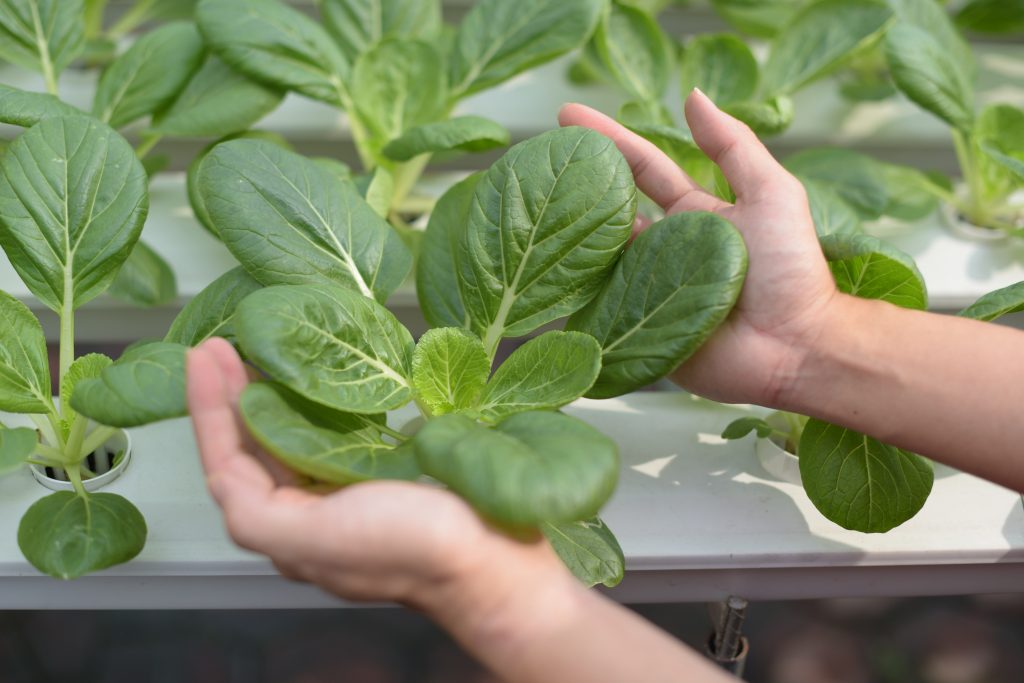

Guide to hydroponic farming at home in Malaysia
If you’re planning on starting your own hydroponic farming at home, here are some basic tips you may follow to get started:
Choose plants that are easy to grow
Though you may want to get started on your favourite vegetables, not every vegetable is able to be grown hydroponically. To avoid disappointment, start with easy-growing vegetables such as lettuce, pak choy and herbs.
Pick your preferred hydroponic system
There are various systems such as wicking, nutrient film technique (NFT), deep water culture (DWC), drip system, and ebb & flow. Depending on your current condition and where you’ll place the hydroponic system, it’s a good idea to get to know each system and figure out which works best for you.
Clean your hydroponic system regularly
The main purpose of growing your own food is to ensure it’s fresh and safe to eat. You wouldn’t want to eat vegetables harvested from a contaminated system right? It is recommended to clean your hydroponic system every two to three weeks. Do remember to check the roots of your plants so that no algae is formed either.
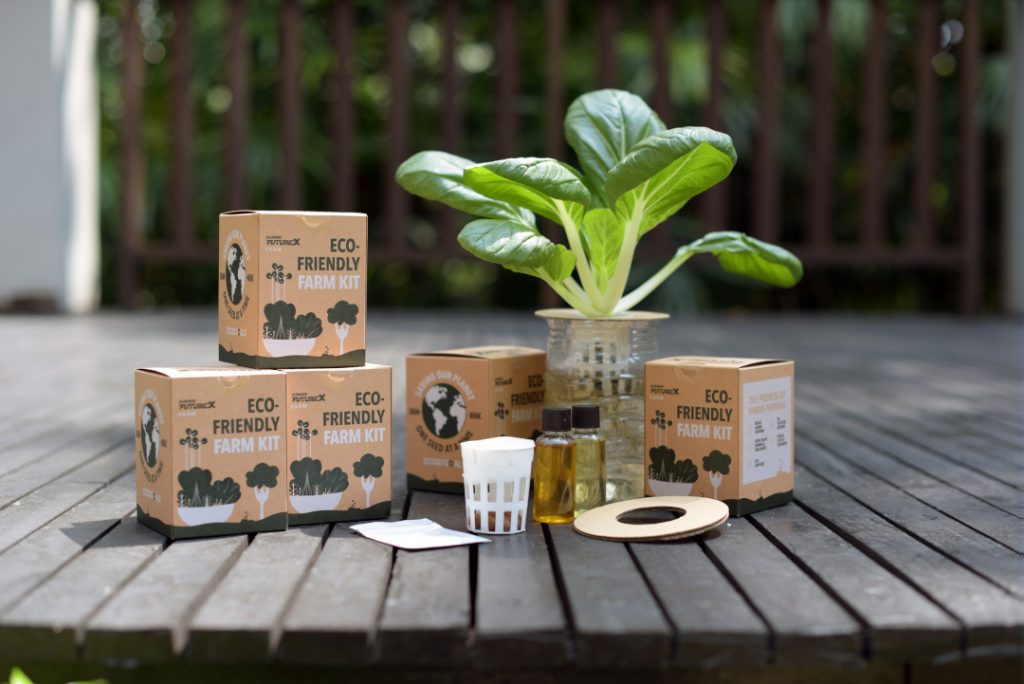

If you’re interested in trying out hydroponic growing without investing too much, we have just the thing for you– our beginner friendly eco-friendly farm kit. Try it out today!

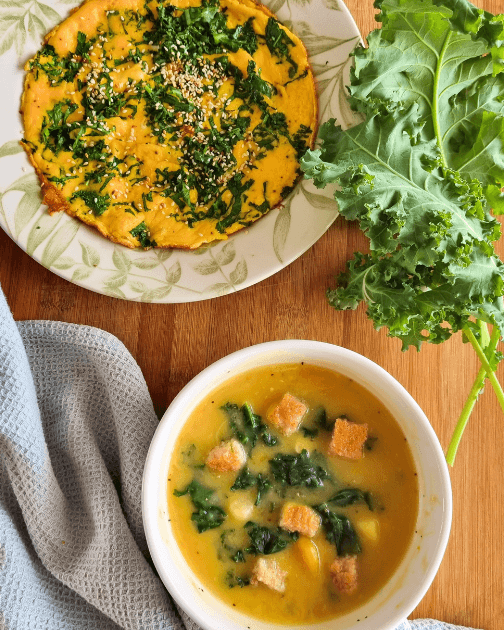


I was very pleased to find this great site. I need to to thank you for ones time for this fantastic read!! I definitely loved every bit of it and i also have you book-marked to look at new stuff on your website.
I need to to thank you for this great read!! I certainly enjoyed every little bit of it. I have got you book-marked to check out new things you postÖ
May I simply say what a comfort to uncover somebody that actually understands what theyre talking about on the internet. You definitely realize how to bring an issue to light and make it important. A lot more people ought to check this out and understand this side of the story. I cant believe you are not more popular since you definitely possess the gift.
Engaging. It keeps my mind occupied
Thank you for sharing such valuable information. It’s incredibly helpful.